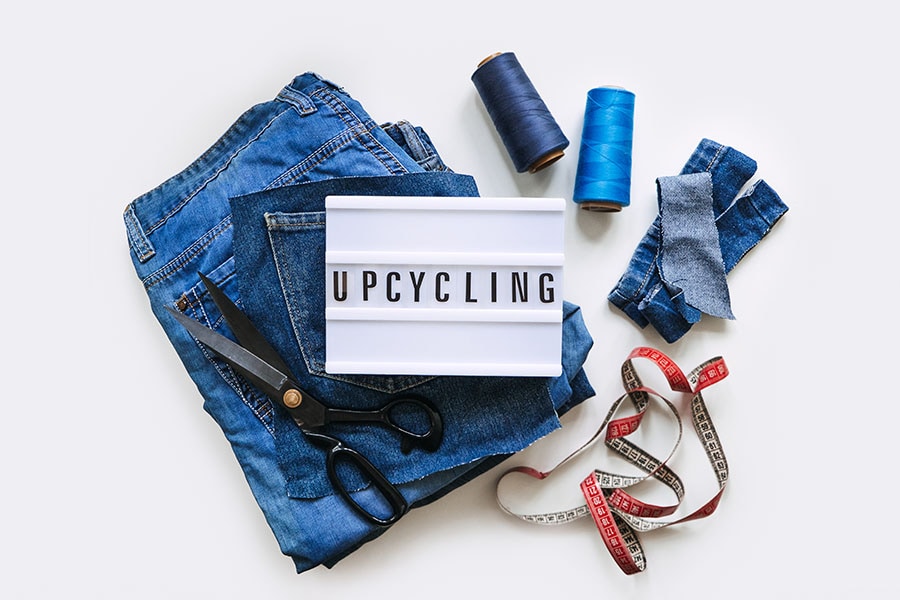
How upcycling is taking root in India
From a potato chip packet, to used or broken furniture and objects, PET plastic, and food packaging, in India, the famous Lavoisier quote, "Nothing is lost, nothing is created, everything is transformed," is as relevant as ever today
 Plastic, denim, food packaging, broken furniture and more is now being transformed into fabrics and clothing thanks to India's entrepreneurs. Image: Shutterstock
Plastic, denim, food packaging, broken furniture and more is now being transformed into fabrics and clothing thanks to India's entrepreneurs. Image: Shutterstock
Just like second hand shopping and clothing repair, upcycling is now a serious alternative in the fight against waste and the mountains of trash that populate the planet. These practices are being adopted all around the world, and particularly in India, where creators and entrepreneurs are rolling out initiatives, each more innovative than the next.
From a potato chip packet, to used or broken furniture and objects, PET plastic, and food packaging, in India, the famous Lavoisier quote, "Nothing is lost, nothing is created, everything is transformed," is as relevant as ever today. Faced with environmental issues, more and more designers are launching into upcycling to recover waste and give it a second life in the form of clothing. And these initiatives highlight how waste and trash are some of the main obstacles to making fashion more virtuous.
Fighting plastic waste
Aged just 17 years old, and while still a student, Aditya Banger, originally from Bhilwara (Rajasthan), became an entrepreneur by starting to recycle plastic bottles and packaging to transform them into fabric. At the helm of a company called Trash to Treasure, which was created at the beginning of 2021 — in the midst of the Covid pandemic — he now recycles no less than 10 tonnes of plastic per day, in turn creating fabric that's sold to make clothing.
The concept was conceived and implemented to "[create] a better India by reconsidering the production chain and recycle all recoverable materials with economic and environmental benefits," reads the start-up's Instagram account. And the young entrepreneur isn't the only one working in this field in India, a country that generates between three and four million tonnes of plastic waste per year.
Also read: From landfill to wardrobe, how fashion is giving waste a new lease on life







